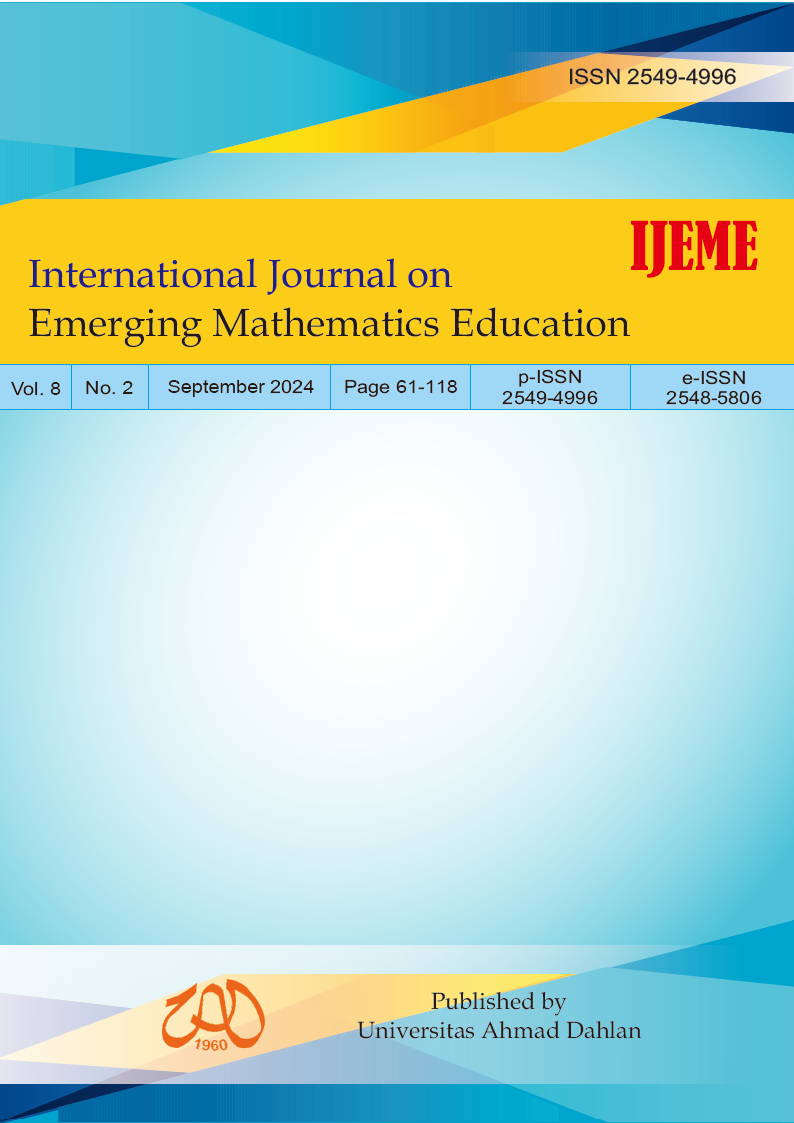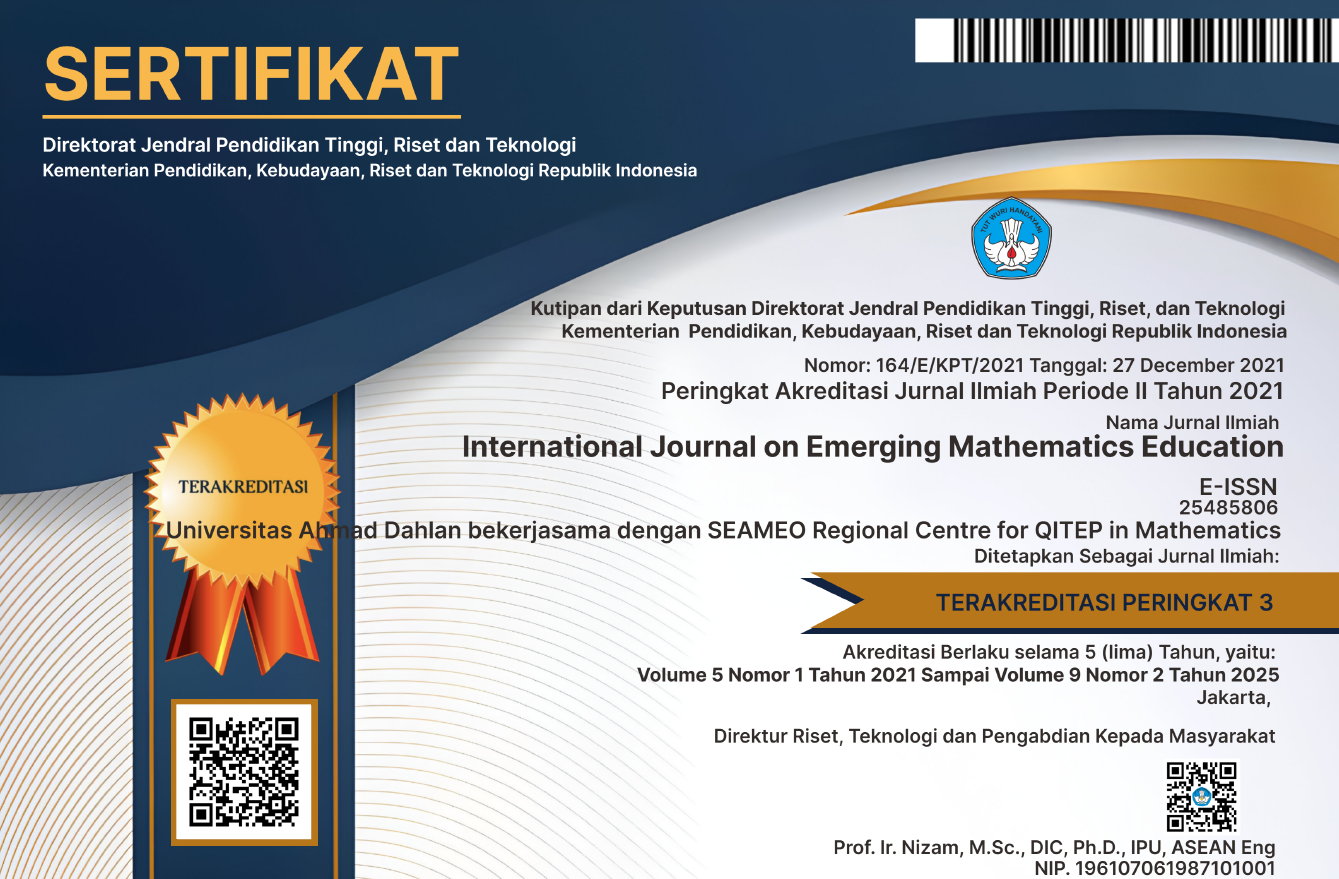Developing PBL-based Student Worksheet to Foster Mathematical Literacy in Probability Topic
DOI:
https://doi.org/10.12928/ijeme.v8i2.30702Abstract
The mathematical literacy ability of students in Indonesia is still relatively low, especially at the Vocational High School (SMK) level. One solution that can be implemented is the development of learning media in the form of Student Worksheets (LKPD) based on mathematical literacy using the Problem-Based Learning (PBL) model. This study aims to develop and test the validity and practicality of mathematical literacy-based LKPD on the topic of compound probability events. Using the Research and Development (R&D) method and the ADDIE development model, which consists of five stages—Analysis, Design, Development, Implementation, and Evaluation—this research was conducted on 11th-grade students of the Automotive Engineering 4 class at SMK Negeri 3 Yogyakarta. The results show that the developed LKPD was rated as highly valid by subject matter experts (88.13%) and media experts (92.97%). Additionally, students' responses to the practicality of the LKPD reached 93.65%, which falls into the highly practical category. Thus, this LKPD can be used as an effective learning medium to improve the mathematical literacy of vocational high school students.Downloads
Published
How to Cite
Issue
Section
License
Copyright (c) 2025 Faizatur Rofidah, Vita Istihapsari

This work is licensed under a Creative Commons Attribution-ShareAlike 4.0 International License.
License and Copyright Agreement
In submitting the manuscript to the journal, the authors certify that:
- They are authorized by their co-authors to enter into these arrangements.
- The work described has not been formally published before, except in the form of an abstract or as part of a published lecture, review, thesis, or overlay journal. Please also carefully read the International Journal on Emerging Mathematics Education (IJEME) Author Guidelines at http://journal.uad.ac.id/index.php/IJEME/about/submissions#authorGuidelines
- That it is not under consideration for publication elsewhere,
- That its publication has been approved by all the author(s) and by the responsible authorities, tacitly or explicitly, of the institutes where the work has been carried out.
- They secure the right to reproduce any material that has already been published or copyrighted elsewhere.
- They agree to the following license and copyright agreement.
Copyright
Authors who publish with the International Journal on Emerging Mathematics Education (IJEME) agree to the following terms:
- Authors retain copyright and grant the journal the right of first publication with the work simultaneously licensed under a Creative Commons Attribution License (CC BY-SA 4.0) that allows others to share the work with an acknowledgment of the work's authorship and initial publication in this journal.
- Authors are able to enter into separate, additional contractual arrangements for the non-exclusive distribution of the journal's published version of the work (e.g., post it to an institutional repository or publish it in a book), with an acknowledgment of its initial publication in this journal.
- Authors are permitted and encouraged to post their work online (e.g., in institutional repositories or on their website) prior to and during the submission process, as it can lead to productive exchanges, as well as earlier and greater citation of published work.
![]()
Ciptaan disebarluaskan di bawah Lisensi Creative Commons Atribusi-BerbagiSerupa 4.0 Internasional.





